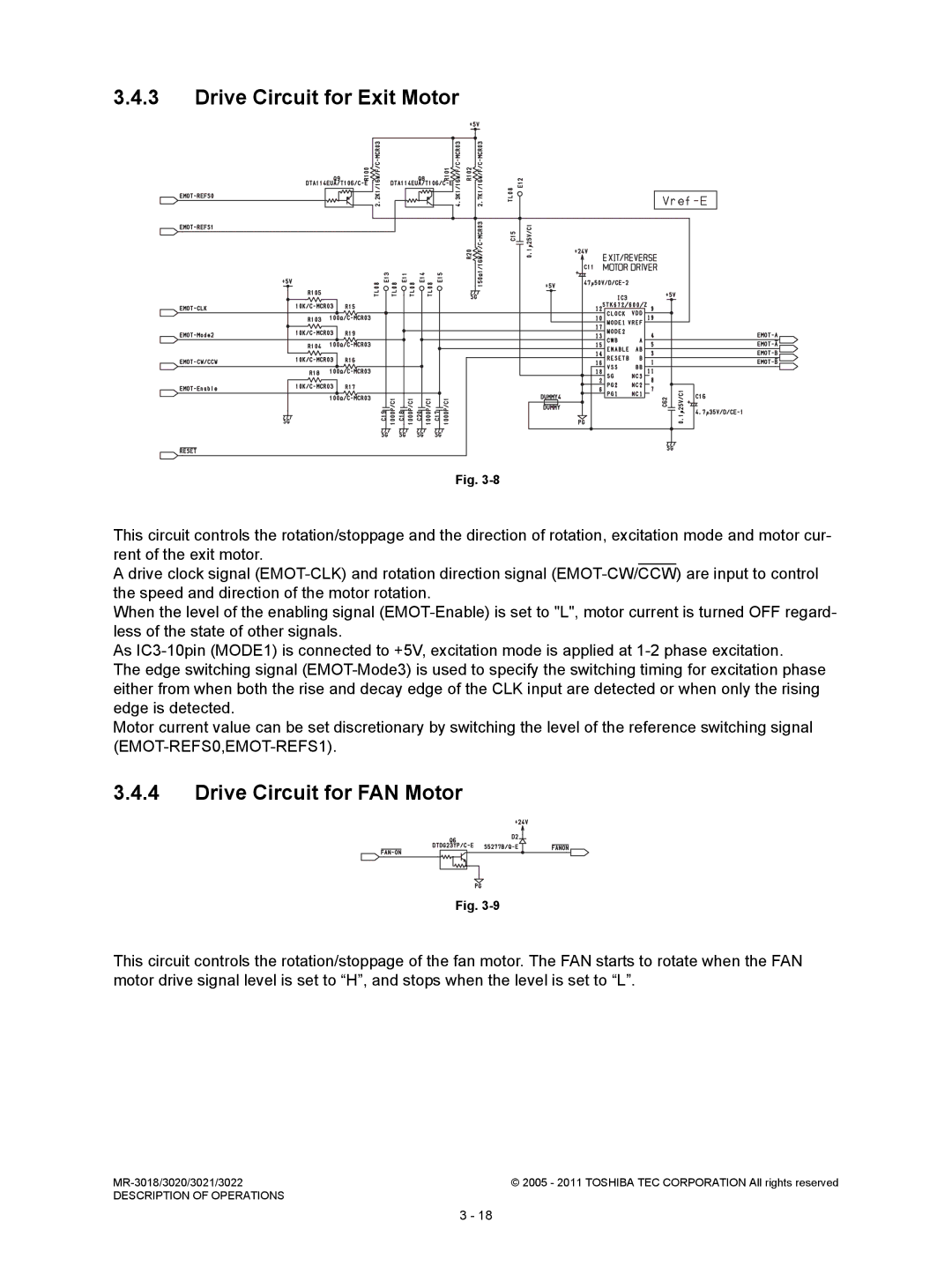
3.4.3Drive Circuit for Exit Motor
Fig. |
This circuit controls the rotation/stoppage and the direction of rotation, excitation mode and motor cur- rent of the exit motor.
A drive clock signal
When the level of the enabling signal
As
The edge switching signal
Motor current value can be set discretionary by switching the level of the reference switching signal
3.4.4Drive Circuit for FAN Motor
Fig.
This circuit controls the rotation/stoppage of the fan motor. The FAN starts to rotate when the FAN motor drive signal level is set to “H”, and stops when the level is set to “L”.
© 2005 - 2011 TOSHIBA TEC CORPORATION All rights reserved | |
DESCRIPTION OF OPERATIONS |
|
3 - 18
